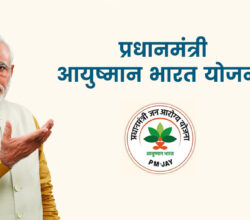Silence now may cost global unity later!!.
Pahalgam is not just a message to India — it is a warning to every multicultural, secular nation across the globe. General Munir’s speech is not mere rhetoric; it is an ideological challenge to the foundations of peaceful coexistence. When a state leader declares that religious difference justifies separation, it becomes a message of division for every country where Muslims live as peaceful citizens.In any proper democracy, the army chief should only follow the elected civilian government’s directives.When the Army Chief Talks, Is Pakistan’s Civilian Government Still Relevant?
Key Excerpts and Ideological Grounding
Asim Munir, speaking at the Overseas Pakistani Convention in Islamabad on April 16, 2025, delivered a speech laden with historical and ideological undertones. His speech invoked the foundational Islamic identity of Pakistan, drawing direct parallels between the formation of Pakistan and the State of Medina.
“Pakistan is one of two nations that have been formed on the basis of the kalma. One is the state of Medina and 1,300 years later, Pakistan.”
He referred to Pakistan as a nation built on superior ideology and culture:
“You are the country’s ambassadors and must not forget that you belong to a superior ideology and culture.”
General Munir further revived the Two-Nation Theory, emphasizing irreconcilable differences between Hindus and Muslims:
“Our forefathers believed that we were different from Hindus in every possible aspect of life. Our religion is different. Our customs are different. Our traditions are different. Our thoughts are different. Our ambitions are different.”
Lastly, he reiterated Pakistan’s traditional stance on Kashmir:
“Kashmir is our jugular vein. We will not forget it.”
Implications and Contradictions
General Munir’s speech, while aimed at affirming national pride, introduces contradictions especially when addressing a diaspora audience. Overseas Pakistanis often live in multicultural societies where integration, cultural respect, and adaptability are key to professional and social success.
By labeling Pakistan’s culture as “superior,” and placing emphasis on religious identity and ideological purity, the speech risks alienating those who have successfully integrated abroad. It may even place them in an internal conflict — caught between patriotic sentiment and the realities of their adopted homes.
Moreover, this speech dangerously revives sectarian rhetoric:
- Muslims and Hindus are framed as entirely different nations.
- The difference is stated to be as stark as “chalk and cheese.”
- Kashmir is declared not just an issue, but a sacred obligation.
- Pakistani children are urged to internalize these ideological divides.
- Sacrifices are demanded, hinting at future confrontations.
This rhetoric isn’t merely symbolic. It is provocative, suggesting that Kashmir should remain a flashpoint, and that Indian Muslims, by implication, should seek a new partition. It is a call not for peace but for ideological polarization.
Global Impact and Strategic Warnings
General Munir’s assertions directly challenge not only India’s secular identity and territorial integrity, but also global democratic and pluralistic values. His speech signals a shift — perhaps the most explicit yet — in Pakistan’s strategic posture. No longer veiled behind the so-called “deep state,” this is a loud, clear ideological declaration by the head of its armed forces.
The implications are immense:
- For India: This is a direct challenge to its secular framework, its Kashmir policy, and its unity.
- For the World: If Pakistan positions itself as incompatible with pluralism, what does that mean for global peace?
- For Overseas Pakistanis: Integration vs. isolation — General Munir’s speech creates a philosophical rift between allegiance to their homeland and harmony with their host countries.
In essence, rather than encouraging Pakistani expatriates to act as goodwill ambassadors, this speech suggests rigid allegiance to a singular identity. It discourages cultural integration and challenges the very idea of co-existence in diverse societies.
This is a watershed moment — not just in Indo-Pak relations, but in how the world must view Pakistan’s ideological trajectory. The mask is off. The declaration is open. Now, the response must be equally clear-eyed and collective.
What makes someone like General Asim Munir far more dangerous than the ideology he promotes is his position: the head of one of the most powerful militaries in the Islamic world, in control of nuclear assets, and commanding a vast influence over the Pakistani state and its people.In theory ,actually not legitimate in a so called Democratic Pakistan.
He is not a fringe cleric or an obscure preacher — he is the system. When such a figure openly espouses exclusivist, supremacist rhetoric — declaring religious superiority, rejecting pluralism, and invoking violent historical justifications — it becomes a strategic doctrine, not just a personal belief.
The tragedy is that the world often looks for overt acts of terror to raise alarms, ignoring that ideas, when institutionalized, become more dangerous than bullets. Munir’s words were not accidental. They were carefully chosen, targeted, and delivered to a diaspora with global reach — with the potential to sow division, suspicion, and conflict in India and in other societies where integration is already fragile.The proof manifested in Pahalgam immediately.He is the accused Number one hiding behind a civilian govt of Pakistan
So the question is not just “Will the world take note?” — it must be, “How long can we afford to ignore warning signs delivered from podiums of power?”






